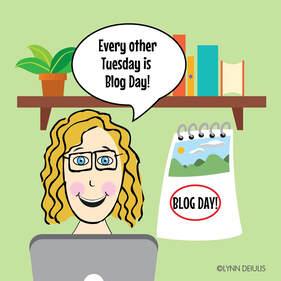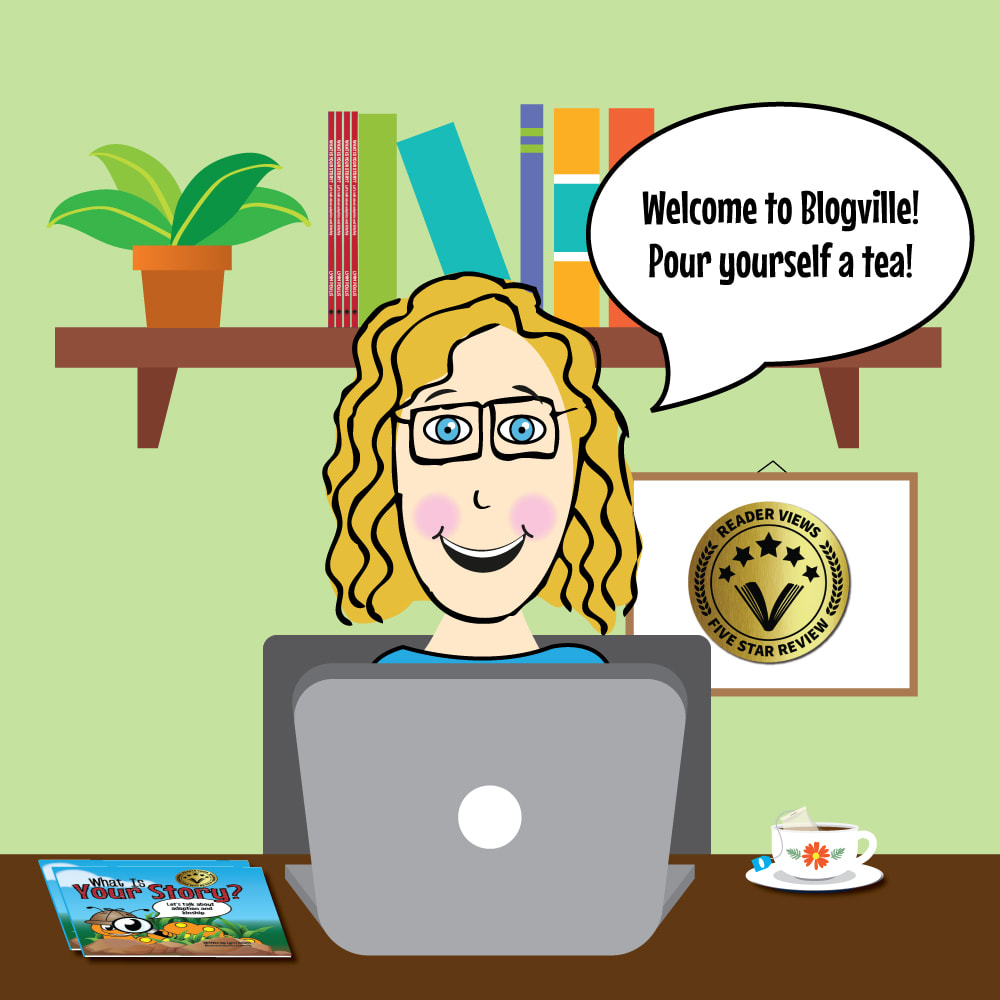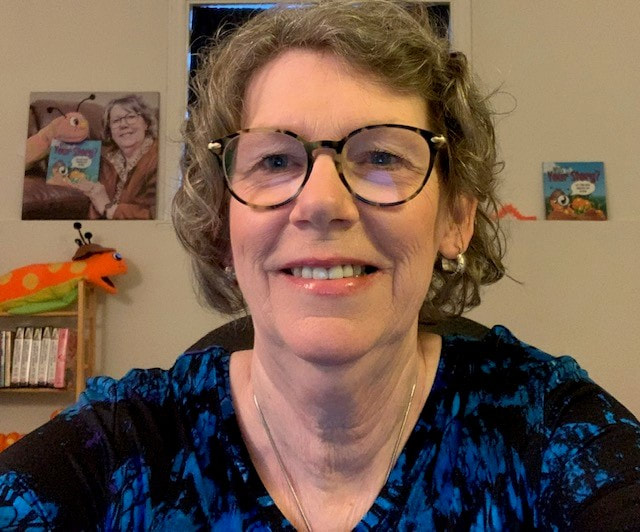|
Welcome to Blogville! Herbal tea for me today, what about you?
Discussions with your children may one day involve the question, “Where did I get my name?” They love to hear about being named after a family member, or the story of how you heard their name in a movie or a song, or that you read it in a book and just knew you would name your child that name one day. They want to know what inspired you to name them what you did. They want to know why their name mattered to you when you gave it to them, what made it special. They may also want to know what made you change the name their birth parent(s) gave them. Shakespeare once wrote: “What’s in a name? That which we call a rose by any other name would smell just as sweet." He used this line in his play, Romeo and Juliet, to convey the idea that the naming of things is irrelevant. Is it? Each of our journeys began with being born and given a name. Not all of us kept our birth name. Some children were named by their birth parent(s). Some children with adoption plans were named by their workers or by nurses as their birth mothers had left without naming their baby. Some children were named by their adoptive parent(s). According to government records, my birth name was Marie Yvonne. In my third foster care placement, I was introduced to my foster mother as Marie, and that is what she called me in the months I lived with her and her family. My adoptive parents then named me Lynn Dianne at the age of nine months, and that became my legal name. I was named Lynn after my maternal grandmother. Think about the story of your name, do you know it? If you don’t know the story, who could you ask about how you got your name? When I met my maternal birth half-sisters, they wondered if our birth mother had named me after two of the Dionne Quintuplets, (some of you might need to look up who they were). According to her daughters, our birth mother had been very interested in the story of the Dionne Quintuplets who were born in in 1934 in North Bay, Ontario. Very recently I had the privilege of meeting my third foster mother; a story for another blog. She was 86 years old when I finally met her and she called me “my Marie”. She would correct herself and call me Lynn. I explained to her that she is welcome to call me Marie because when she thinks of that name it means someone important to her . . . me, and I’m ok with that. When (as an adult) I was seeking out my birth half-sibling, whom I thought was a brother, my assigned worker constantly asked if I was just trying to find him so I could find my birth mother. She referred to this as a ‘back door approach”. This is also a story for another blog but in the meantime, know that the worker made a ‘deal’ with me that if the boy had been adopted by his grandparents, I would consider letting the matter drop, but if he was adopted by strangers we would proceed. Out of the blue one day I got a call, and when I answered, the worker was quite excitedly stating, “It’s a girl and she was adopted by strangers! Guess what her name is????” As you can imagine, I was floored by this sudden story change; a story I had understood to be the truth all my life. A story my parents believed was the truth. “Guess what her name is??” was the last of my concerns. I remember saying something like, “well out of the hundreds of possible girl names, I can’t even begin to guess.” The worker said, again excitedly, “her name is also Lynn but spelled Lynne”. Isn’t that neat?” Neat? People who know me will not be surprised to hear that I said to the worker, “Actually, I think that it is very sad that two sisters would end up with the same name. I’m sure you think it is “neat” because no matter which one of us you are speaking with, you need not worry about getting our name wrong.” Neat! I do not know what the odds are of having two adoptive families name their adopted daughter the same names, but it has to be remarkable. Imagine for a minute, when we met each other and were introducing each other to our family members and friends, “This is my sister, Lynn(e).” Many awkward moments. Many people thought she was my sister-in-law. After 30 years of knowing each other, we now finally find some humour in telling people that our names are both Lynn/Lynne but they are spelled differently; so that is how you can tell us apart. At our births, our birth mother gave Lynne the name of Mary, and had named me Marie Yvonne when I was born. So, I guess, in fact, our birth mother had also given us the same first name, though also different spellings. Oh, the irony, right? My brother’s name was changed because his first name did not go well with his new adopted surname; he was almost three years old when they changed his name. Imagine moving to a new family and having them instantly call you by a new name; I feel like there may have been some trauma for him in that experience. So many losses in terms of identity and sense of self. In my career as an adoption worker there were rare occasions where we needed to change a young child’s name upon placement (usually for safety reasons) so we did it gradually, first using both names together until there was recognition by the child of the new name, and then gradually dropping the original name. It is still a loss, gradual versus sudden; perhaps a mitigating factor. I have also had older children want to change their name, usually as a claiming behaviour, and in those cases, we usually added or changed middle names. So, what’s in a name? Plenty! Think about your name and if you have a story that goes with it that you would not mind sharing. If you like, please put it in comments, I’d love to hear your name story.
0 Comments
Welcome back to Blogville! Are you having black tea or herbal today as you read?
The Merriam-Webster.com definition of adoption is (partially): “1: to take by choice into a relationship; especially: to take voluntarily (a child of other parents) as one’s own child. . . 5. to sponsor the care and maintenance of // adopt a highway. . ." Examples of adopt in a Sentence “They were unable to have children of their own, so they decided to adopt.” Though the Merriam-Webster.com adoption definition does not include the adoption of pets, that is another immediate thought people have when the word adoption is mentioned. I have to say, one of the most confusing concepts I experienced as an adopted person was the idea that my parents could not have children “of their own.” So many times, people would introduce my brother and I as our parents’ children and then, for some unknown reason, would feel the need to qualify this by saying, usually in hushed or whispered tones, that we were adopted because our parents could not have children of their own. So, you can imagine, a child may wonder, ‘if I am not my mom and dad’s child; well, whose child am I?’ When my mom would parent me, she would often say ‘do this’, or ‘stop doing that’, usually qualified with the explanation of “because I said so, and/or because I am your mother and I said to stop that” (those of you who have heard these types of expressions, feel free to roll your eyes here). I am pretty confident that there was a clear expectation of compliance solely based on our mother-child relationship. Or, when my mom would say, “go ask your father”, I was convinced that she meant the guy in the living room who was also raising me, supporting me, and loving me; just like a father would do, and like other kids’ fathers were doing. So, if I was not their own daughter, whose daughter, was I? I mean, everyone in my life called them my parents, and even when they qualified it with the whispered statement of, “she was adopted because they couldn’t have children of their own.” they still referred to them as my parents. To further complicate things, I had to speculate that since my poor brother wasn’t able to have a “sister of his own” he was stuck with me. I must admit that the notion that my parents couldn’t have “children of their own” came in handy when I learned how babies were conceived. At least I knew that my parents were innocent of such behaviour. I could hold my head high among my friends whose parents had done that deed; evidenced by the fact that my non-adopted friends had been born to their parents. Oh, how embarrassing for them! I remember when I was in grade 8 (or around there) my classmate’s mother became pregnant. I am ashamed at how we teased that poor girl, we teased and we teased her about what her parents had been up to in order to have made that baby Finally she snapped, looked at all of us and yelled, “Oh yeah? Well, YOUR parents do ‘IT’ too!” It was my moment to shine as I fired back, “My parents never do “IT” . . . I’m adopted!” I sincerely apologize to that classmate now, if I never did before. So, to add another layer to this dilemma, my birth mother could have a child “of her own”, did so, but did not claim to be a mother. Yet people would refer to her as my “real mother”?! While my mom, who could not have a child “of her own”, was signing all my consent forms on the line that said, “Mother or Parent.” She even behaved like I think a “real mother” was expected to behave. As a child, the lesson I learned from this was that the words are just titles (e.g., mother, father); but that the individuals’ actions define the role and relationship. I was never confused about who my mother or father were, even though I often wondered who my birth parents were. I knew in my heart whose actual child I was, and I believed that this is what my birth mother wanted for me when she chose an adoption plan. Before I leave you, I want to circle back to .5 of the Merriam-Webster.com definition of adoption; “to sponsor the care and maintenance of // adopt a highway. . .” I remember in the 1980s, when Adopting Highways became a thing; as I would pass “Adopt A Highway” signs I would ironically wonder where Ontario actually got their highways if they couldn’t have highways of their own? I hope you have a nice cup of tea ready as you join me in Blogville to hear a little more about my story.
As you read the words and thoughts that I will be sharing with you please know that I am a child of adoption in the era of the late 50s, early 60s. The era of closed adoptions. It was a ‘shameful' thing for women to fall pregnant (quite on their own apparently, or after seducing some poor unsuspecting lad from a good family). It was still a time where the young mother’s parents could decide the fate of their daughter and their grandchild. These young women were often sent off to ‘visit relatives’ which often meant being sent to a home for unwed mothers. For some insight into what that was like, I found Ann Fessler’s book, The Girls Who Went Away, takes an honest look at those experiences (caution; a very emotional read that may contain triggers). Another historical practice was for the grandparents to fake a pregnancy, or move to a new community after the child was born, and then raise the child as a sibling to the birth mother. Also notable in the late 50s, early 60s, was birth fathers’ lack of rights in the decisions made regarding their unborn child. I will talk with you one day about my experience with my own birth father and what this lack of rights meant to him. Their decisions, whatever they were, were life changing. As a child, I had always accepted what was told to me, what my parents knew, and the information they shared with me about my birth family and the circumstances that led to me being available for adoption. People who know me as an adult are reading that and saying? “You what?” The simple answer is that as a vulnerable adopted child, I had to trust my parents, like my parents had to trust that the information provided by the workers was accurate. Those workers, in turn, trusted what was written in the file notes when they shared it with my parents . . . well, you get the idea. Now, about motherhood and my two mothers’ gifts. I had an ongoing curiosity about my birth family, as you can imagine, but never as much as when our first daughter was born. I remember looking at my husband when I was in labour and asking him if he had thought about the fact that our baby may not look like me, or like anyone in his family. Afterall, I was adopted and did not know what anyone in my birth family looked like (except for my own image in the mirror) so he would be the only parent to notice any familial traits in our child. He was not worried about it; he was just excited to meet our son or daughter. When our daughter was born there were some complications and I was not allowed to see her for several hours. Imagine, the very first biological relation I had every known and they kept me from seeing her for myself. That experience caused me to wonder if my birth mother saw me after I was born and if not, was she feeling denied like I was feeling right then? When the nurses finally put my daughter, my first flesh and blood relative, in my arms, I cried. I cried for my birth mother, and for me, as I had no idea if we had ever shared a moment like this. Leaving my dad behind to fend for himself, my mom had driven 7 hours to be with me, and my new baby when we came home from the hospital. As I was trying to navigate motherhood I would ask her many questions, and she often said in frustration, “I don’t know, I never had a newborn to take care of.” Or “I don’t know how to look after a baby younger than 9 months old.” That was my age when I was placed with my parents, my brother had been 2 ½ years old when he was placed with them. As well, I was breastfeeding, something she did not have experience with. But she turned to what she knew, how to nurture and provide. She went up to the store, bought material, and sewed diapers and blankets for the baby, to go with the beautiful knitted outfits she had already created. She cooked for my husband and I, and she cleaned and did the mountain of laundry created by one tiny being. She did all this so I did not have to. She helped care for my healing caesarean incision with great care and concern. My mom parented me while I was learning how to parent my daughter. I was learning how to love from my mom. My birth mother had given me the gift of life, and my mom had given me the gift of a life and family. These were my two mothers’ life gifts. While my mom was caring for me and my family, I could not help think about my birth mother. Were the birth complications I and my baby had experienced something genetic, maybe even something she had experienced? What medical history was there that might impact on my baby’s health and/or development? Suddenly I had a need to know my medical history. To know more than what my parents had access to and what they were able to share with me. When my daughter was about two weeks old, and I was 22 years old, I called the Children’s Aid Society to request my social and medical history information. Just wait until you hear how that went. |
Read More
July 2024
Categories |



 RSS Feed
RSS Feed